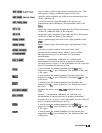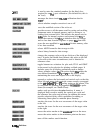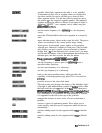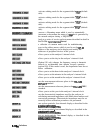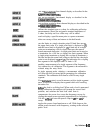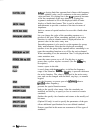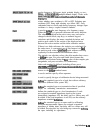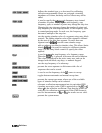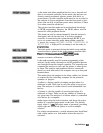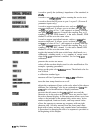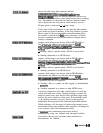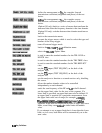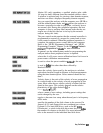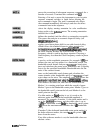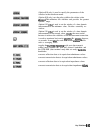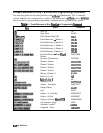
is the mode used when peripheral devices are to be used and
there is no external controller. In this mode, the analyzer can
directly control peripherals (plotter, printer, disk drive, or
power meter). System controller mode must be set in order for
the analyzer to access peripherals from the front panel to plot,
print, store on disk, or perform power meter functions, if there
is no other controller on the bus.
The system controller mode can be used without knowledge
of HP-IB programming. However, the HP-IB address must be
entered for each peripheral device.
This mode can only be selected manually from the analyzer’s
front panel, and can be used only if no active computer
controller is connected to the system through HP-IB. If you
try to set system controller mode when another controller
is present, the message
ANOTHER SYSTEM CONTROLLER ON
HP-IB BUS
is displayed. Do not attempt to use this mode for
wm--W3.
Each data point is measured during the initial sweep and the
correction data is placed in the power meter correction table.
,,
,......,.,.;
,.,............,.,.,.,.,.i
,._
_
This
protides
data
usable
h
*e
~~~~~~:
mode*
.,...;
. . .
..
. . .
../._...~.~...i.
~.r.:..:::.~.:.:..
executes a receiver calibration.
is the mode normally used for remote programming of the
analyzer. In this mode, the analyzer and all peripheral devices
are controlled from the external controller. The controller can
command the analyzer to talk, and the plotter or other device
to listen. The analyzer and peripheral devices cannot talk
directly to each other unless the computer sets up a data path
between them.
This mode allows the analyzer to be either a talker or a listener,
as required by the controlling computer for the particular
operation in progress.
A talker is a device capable of sending out data when it is
addressed to talk. There can be only one talker at any given
time. The analyzer is a talker when it sends information over
the bus.
A listener is a device capable of receiving data when it is
addressed to listen. There can be any number of listeners at
any given time. The analyzer is a listener when it is controlled
over the bus by a computer.
makes target value the active function, and places the active
marker at a specified target point on the trace. The default
target value is -3
dB.
The target menu is presented, providing
search right and search left options to resolve multiple
solutions
For relative measurements, a search reference must be defined
with a delta marker or a tied marker before the search is
activated.
Key Definitions
947



